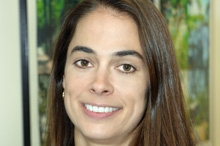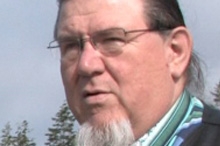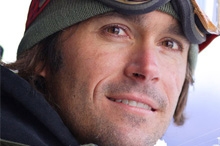Champions of Change Blog
Seeking Outstanding “Open Science” Champions of Change
Posted by on May 7, 2013 at 9:55 AM EDTOn June 20, the White House will host a Champions of Change event to highlight outstanding individuals, organizations, or research projects promoting and using open scientific data and publications to accelerate progress and improve our world. The White House Champions of Change program highlights individuals, businesses, and organizations whose extraordinary stories and accomplishments positively impact our communities.
Access to scientific research can help fuel entrepreneurship, innovation, and scientific breakthroughs. Freely available data generates new ideas, builds new businesses, and generates economic growth that impacts the lives of Americans every day.
That’s why, in February 2013, OSTP Director John P. Holdren issued a memo to the heads of Federal agencies that aims to increase public access to the results of federally-funded research—including scientific data and publications.
Open sharing of research results is a proven strategy for driving positive change. For example, the rapid and open sharing of genomic data from the Human Genome Project revolutionized biomedical research, spurred major growth in the biotechnology industry, and provided $140 in economic returns for every dollar of public investment. And, the Federal Government’s liberation of Global Positioning System (GPS) satellite data led to an explosion of geospatial information systems and the creation of many companies, smartphone apps, and car navigation systems.
Learn more about InnovationsWhite House Champions of Change: Seeking Immigrant Innovators and Entrepreneurs
Posted by on May 6, 2013 at 7:01 PM EDTThe White House Champions of Change program highlights the stories of people across the country who are strengthening their communities and moving America forward.
In just a few weeks, the White House Office of Public Engagement will host a Champions of Change event focused on immigrant innovators and entrepreneurs – the best and brightest from around the world who are helping create American jobs, grow our economy, and make our nation more competitive.
The facts are clear Immigrants make America more prosperous and entrepreneurial. Immigrants are more than twice as likely to start a business in the United States as the native-born, and more than 40 percent of Fortune 500 companies from GE and Ford to Google and Yahoo! were founded by immigrants or the children of immigrants.
Moreover, immigrants generate extraordinary innovation as scientists and engineers. Immigrants represent 50 percent of PhDs working in math and computer science and 57 percent of PhDs working in engineering. By some estimates, immigration was responsible for one third of the explosive growth in patenting in past decades, and these innovations contributed to increasing U.S. GDP by 2.4 percent.
We are asking for your help to identify immigrant innovators and entrepreneurs who may be "Champions of Change." For example, a champion could be the founder of a growing U.S. company, or a graduate student working on breakthrough research at a U.S. university.
Nominate an immigrant innovator or entrepreneur as a Champion of Change.
(Under "Theme of Service," choose "Immigrant Innovators and Entrepreneurs".)
Please submit nominations no later than 6pm ET on Sunday, May 12.
We also encourage you to learn more about President Obama's plan to fix our broken immigration system and share your own immigration story.
Learn more about Immigration, TechnologyWatch Live: White House Highlights AAPI Women as "Champions of Change"
Posted by on May 6, 2013 at 9:57 AM EDTLater today, as a part of Asian American and Pacific Islander (AAPI) Heritage Month, the White House will honor fifteen Asian American, Native Hawaiian, and Pacific Islander women as "Champions of Change" who are doing extraordinary work to create a more safe, equal, and prosperous future for their communities and the country.
The Champions of Change program was created as an opportunity for the White House to feature groups of Americans - individuals, businesses, and organizations - who are doing extraordinary things to empower and inspire members of their communities.
Join us to watch this event live starting at 1:00 p.m. EDT.
Learn more aboutBuilding Climate Resilience through Regional Planning and Local Action
Posted by on April 30, 2013 at 1:36 PM EDT Jennifer Jurado is being honored as a Champion of Change for her efforts as a Community Resilience Leader.
Jennifer Jurado is being honored as a Champion of Change for her efforts as a Community Resilience Leader.
I have been working with Broward County government since I completed my graduate studies in 2002. I received my doctorate degree in Marine Biology and Fisheries from the University of Miami where I studied Phytoplankton Ecology. I thoroughly enjoyed my graduate experience and my work in the coastal environment and expected that my longer-term career would follow this same track. While I didn't remain in academia, these studies paved the path for a career that has focused on the protection of our natural resources and addressing the challenges of climate change. I am honored to be recognized by the White House as a Champion of Change for my role in advancing climate resilience activities in Broward County and South Florida, and am privileged to work for a leadership that appreciates the great importance of working to build climate resilience at local and regional scales as fundamental to the long-term sustainability of our community, environment, and economy.
I originally joined Broward County as the County's water resources manager, responsible for county-wide coordination of water resource management, policy and planning, which included staffing of the County's Water Advisory Board. Climate change and sea level rise were increasing being recognized to pose extreme challenges to our long-term ability to maintain flood protection and water supplies in a region that relies upon an extensive system of canals and pumps for flood control and a surficial coastal aquifer already being impacted by saltwater intrusion. In a low-lying coastal community that is largely shaped by water, much of our early focus on climate change was driven by water resources implications. This would ultimately include responsibility for convening the County's Climate Change Task Force, overseeing development of the County's Climate Change Action Plan, and working regionally on climate mitigation and adaptation issues.
The Compact is a commitment among Broward, Palm Beach, Miami-Dade, and Monroe Counties to work collaboratively to address shared mitigation and adaptation challenges through joint policy advocacy, the development of uniform planning tools, the creation of a Regional Climate Action Plan, and the annual hosting of Climate Leadership Summits. Some accomplishments from Compact included the development of a unified sea level rise projection, the creation of a regional greenhouse gas emissions baseline, and sea level rise vulnerability mapping using a common methodology. During the 2011 legislative process, we were able to advance a legislative amendment to the State's Growth Management Act which allows for the designation of "Adaptation Action Areas" by local government. Action Area designation allows us to identify areas vulnerable to coastal flooding and sea level rise. In October 2012, we completed a Regional Climate Action Plan (RCAP) that includes 110 recommendations in the areas of community resilience across 7 focal areas.
Today, our comprehensive plan now includes the sea level rise projection developed by the Compact (9 to 24 inches by 2060), reference to Adaptation Action Areas, and a new land use map which identifies priority planning areas within the County based on likely inundation with a 2-foot sea level rise. We are integrating climate change influences and sea level rise in our regional hydrologic modeling efforts that will guide adaptation strategies as part of our water management and water supply planning decisions and investments. We are also in the midst of advancing a regional energy efficiency finance program that will support our efforts to reduce community-wide emissions and advance economic development in this sector.
As I reflect back on the last several years, I am impressed by the advancements that have been made while also recognizing the magnitude of the challenges that lie ahead. So often, daily progress is obscured by the weight of unmet tasks, but as with many efforts, when you take the time to look back it is only then that you can appreciate the full measure of progress that has been made. This reflection also brings to light the contributions and individual efforts of the many talented and dedicated community members and staff whose efforts make initiatives of this scale possible. Regional coordination has been key to local progress, but continued success will require municipal partnerships, community engagement, and collaborations across all levels of governments. While we have made remarkable progress in southeast Florida and Broward County, we are only just getting started.
Dr. Jennifer Jurado is the Director of the Natural Resources Planning and Management Division in Broward County, Florida
Quinault Indian Nation
Posted by on April 30, 2013 at 1:10 PM EDT Ed Johnstone is being honored as a Champion of Change for his efforts as a Community Resilience Leader.
Ed Johnstone is being honored as a Champion of Change for his efforts as a Community Resilience Leader.
I am a Fisheries Policy Representative for the Quinault Indian Nation, a land of cliff-lined beaches on the Pacific Ocean, evergreen forests, rivers, lakes, and mountains. We fish the same waters and hunt the same lands our ancestors did thousands of years before people from other parts of the world ever came here. We meld our traditions and legacies with technological innovations and provide new opportunities for our hard-working people; however, we always maintain environmental stewardship and sustainability at the forefront of our priorities and spiritual connection.
The Quinault Nation seeks every opportunity to merge our efforts with those of other governments as well as other people from all walks of life as long as they demonstrate respect for our history, our sovereignty and our land, our treaty-protected rights, and the rights of future generations to inherit a healthy world. Economic prosperity and gainful employment are congruent with these things, as long as care, cultural sensitivity, and wise, long term decision-making are the primary considerations in management planning and implementation. Because of this, I gladly accept the honor of being named a “Champion of Change” because – as you know- change is mandatory.
It is important for other Americans to understand the perspective of Native Americans—to learn from it and hopefully adopt elements of it in their own lives. We have lived here a very long time. Survival and adaptation are concepts we Indians know very well. We breathe the same air and walk on the same land as other Americans. We drink the same water. We share a common future. In the long run, humanity will either prosper, or perish, together. Climate change is a major anthropogenic environmental concern, which affects Tribes directly. It has already had major impacts on our lands, causing massive fish kills and transmigrations through hypoxia and ocean-warming, intensified storms and flooding, glacial melting and expanded droughts, eroded beaches and invasive species.
Quinault Nation and other indigenous nations have been responding to climate change for years, and the need to support us in our efforts as well as work with us in a team effort to deal with this issue, as effectively as possible, is absolute. I was proud to the co-chair First Stewards, a non-profit organization which presented a major climate change summit at the National Museum of the American Indian in Washington DC this past summer, and which will continue to bring indigenous people for the U.S. and American territories together over climate issues in the years to come. I am currently treasurer of First Stewards. For more information on this program, please visit our website at www.firststewards.org.
I have worked in the timber and fishing industries of the Quinault Indian Nation most of my life. I am a two-term Quinault Councilman, serving from 1996-2002, and serve as treasurer of the Northwest Indian Fisheries Commission. I also chair the Intergovernmental Policy Council, a forum of tribal and state co-managers of the ocean area that includes the Olympic Coast National Marine Sanctuary.
Edward Johnstone serves as the Quinault Indian Nation Policy Spokesperson on all issues regarding ocean policy and treaty fishing rights
Protect Our Winters
Posted by on April 30, 2013 at 12:42 PM EDT Jeremy Jones is being honored as a Champion of Change for his efforts as a Community Resilience Leader.
Jeremy Jones is being honored as a Champion of Change for his efforts as a Community Resilience Leader.
I started Protect Our Winters (POW) because I had seen real change in the winters during my time spent in the mountains. Snow levels were rising, glaciers shrinking, and winters starting later. The definitive moment was when I was in Northern Canada walking a grassy mountain that used to be a ski hill. It was February and I was with some locals who were telling stories about growing up riding the mountain. When I asked why it was now closed I was shocked at their answer. “It no longer snows here and we don’t have snow making so they had to close the resorts.” Stories like this kept piling up.
Anecdotal stories are one thing, but we recently commissioned a study that actually answers the question: “What is the economic impact of an inconsistent winter?” The results were staggering: in peril are the economies of tourist-dependent states where winter tourism generates $12.2 billion in revenue annually, supports 212,000 jobs, and $7 billion in salaries. Those are the jobs and businesses owned by our friends and families - generators of billions in federal and state income. To us, winter is serious business.
So what is Protect Our Winters doing about it?
First, it’s critical to educate the youth about the problem and inspire them to be the next generation of environmentalists. Throughout the year, we bring professional snow sports athletes into high schools to talk to students about their first-hand experiences with climate change and specific ways to be part of the solution. It’s incredibly powerful to have Olympians and X Games champions talk about climate change and then ask students to join them in being part of the solution. Since launching our Hot Planet/Cool Athletes program in 2012, we’ve met over 15,000 students at 37 schools nationwide.
We also spend a great deal of time with our corporate partners and professional athletes to mobilize the winter sports community at the grassroots level and amplify our collective voices in Washington. The US winter sports industry supports 600,000 jobs and generates $66 billion in economic revenue in the US. If we are going to make a difference, we have to make sure that our community is vocal and recognized at the federal level.
With climate change a constant and visual presence in our lives, our efforts have to be smart, impactful, and swift. Winter sports are in the cross hairs of climate change and I’m as committed as I’ve ever been to continue our efforts on behalf of our industry, our mountain communities, and for our future generations.
Jeremy Jones is an award-winning filmmaker, entrepreneur, environmentalist, and snowboarding pioneer.
- &lsaquo previous
- …
- 71
- 72
- 73
- 74
- 75
- 76
- 77
- 78
- 79
- …
- next &rsaquo
White House Blogs
- The White House Blog
- Middle Class Task Force
- Council of Economic Advisers
- Council on Environmental Quality
- Council on Women and Girls
- Office of Intergovernmental Affairs
- Office of Management and Budget
- Office of Public Engagement
- Office of Science & Tech Policy
- Office of Urban Affairs
- Open Government
- Faith and Neighborhood Partnerships
- Social Innovation and Civic Participation
- US Trade Representative
- Office National Drug Control Policy
categories
- AIDS Policy
- Alaska
- Blueprint for an America Built to Last
- Budget
- Civil Rights
- Defense
- Disabilities
- Economy
- Education
- Energy and Environment
- Equal Pay
- Ethics
- Faith Based
- Fiscal Responsibility
- Foreign Policy
- Grab Bag
- Health Care
- Homeland Security
- Immigration
- Innovation Fellows
- Inside the White House
- Middle Class Security
- Open Government
- Poverty
- Rural
- Seniors and Social Security
- Service
- Social Innovation
- State of the Union
- Taxes
- Technology
- Urban Policy
- Veterans
- Violence Prevention
- White House Internships
- Women
- Working Families
- Additional Issues

